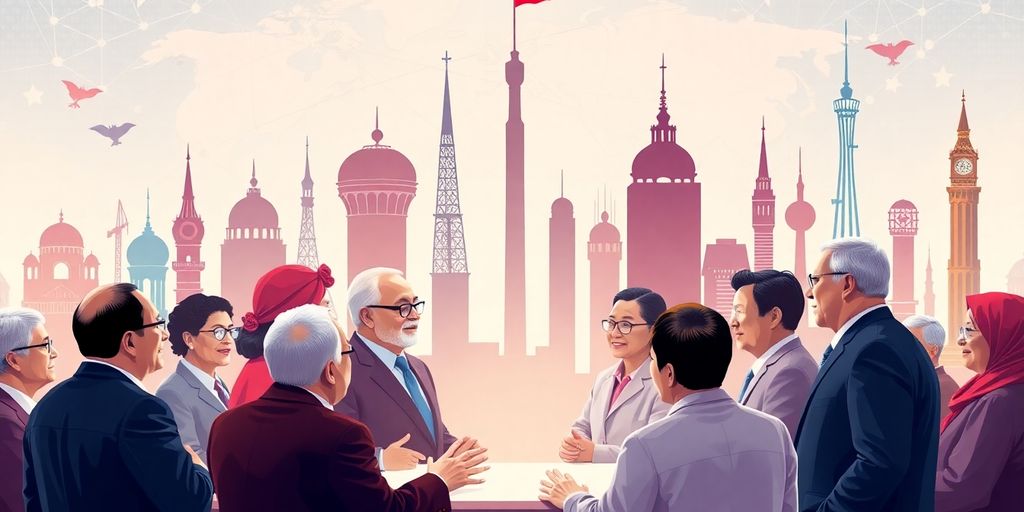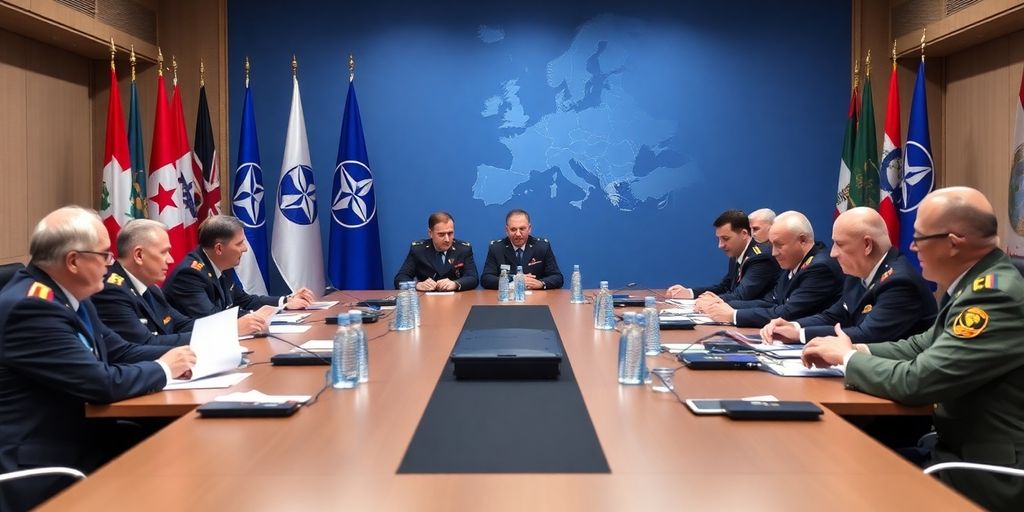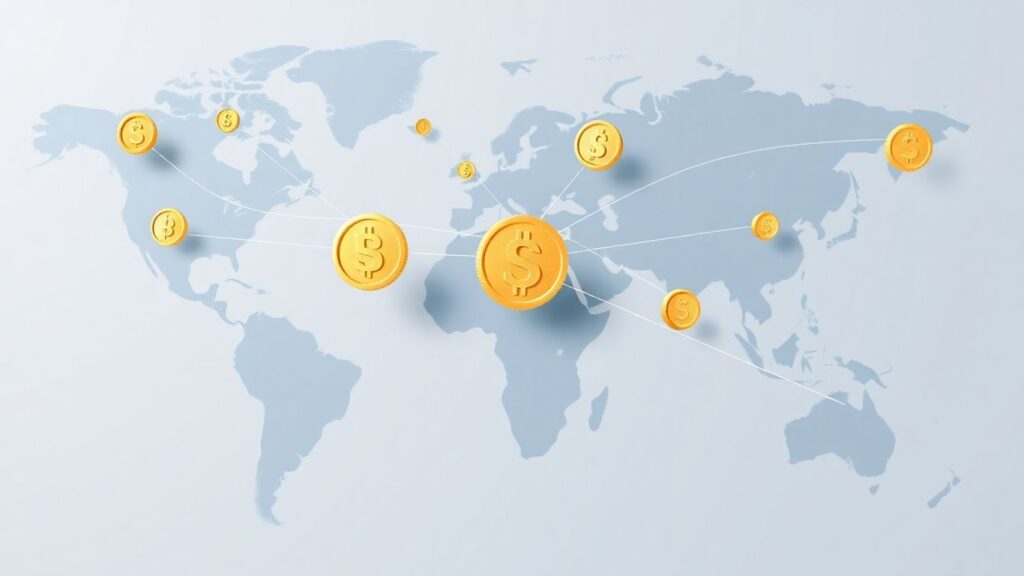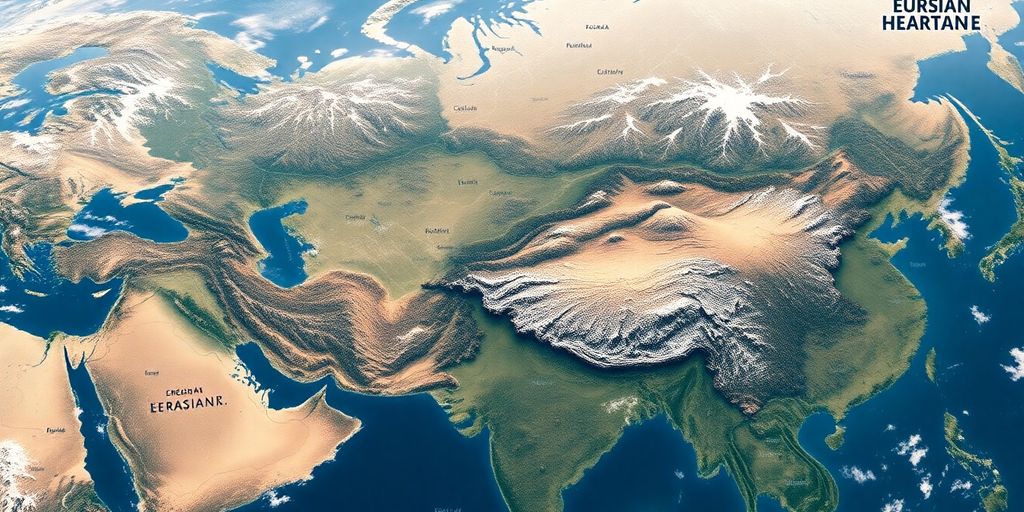Exploring Strategies on The Grand Chessboard: A Guide to Global Geopolitics

In today’s world, understanding global politics is crucial. The book “The Grand Chessboard” by Zbigniew Brzezinski provides valuable insights into the strategies nations use to navigate their relationships and conflicts. This article will explore key concepts from the book and how they relate to current geopolitical issues.
Key Takeaways
- Geopolitics is about how countries interact and influence each other on the global stage.
- Superpowers like the U.S., China, and Russia play significant roles in shaping world events.
- Regional conflicts, especially in places like the Middle East and Asia-Pacific, have global consequences.
- Economic factors, such as trade and energy resources, are vital in determining a country’s power.
- International organizations like the UN and NATO help manage global relationships and conflicts.
Understanding the Basics of Geopolitical Strategy
Defining Geopolitics and Its Importance
Geopolitics is the study of how geography affects politics and international relations. It helps us understand the power dynamics between countries. By analyzing geographical factors, we can see why certain nations act the way they do on the global stage.
Historical Context of Geopolitical Theories
Throughout history, various theories have shaped our understanding of geopolitics. Some key ideas include:
- Heartland Theory: Proposed by Halford Mackinder, suggesting that whoever controls Eastern Europe controls the world.
- Rimland Theory: Nicholas Spykman argued that the coastal fringes of Eurasia are crucial for global power.
- Sea Power vs. Land Power: Alfred Thayer Mahan emphasized the importance of naval strength in global dominance.
Key Players in the Global Arena
In today’s world, several countries play significant roles in geopolitics. These include:
- The United States: A dominant superpower with extensive military and economic influence.
- China: Rapidly growing in power and seeking to expand its influence globally.
- Russia: Actively pursuing its interests in Europe and Asia, often in opposition to Western powers.
Understanding these players and their strategies is essential for grasping the complexities of global politics. The geostrategic business group can help translate geopolitical insights into business strategy to help manage political risk.
Analyzing the Role of Superpowers

The United States and Its Global Influence
The United States stands as the world’s only superpower, with unmatched military and economic strength. This position allows it to shape global events and pursue its interests across the globe. The U.S. has a unique ability to influence international policies and maintain a presence in various regions.
China’s Rise and Strategic Ambitions
China is rapidly emerging as a significant global player. Its strategic ambitions include expanding its economic reach and military capabilities. The Belt and Road Initiative is a prime example of how China aims to enhance its influence worldwide.
Russia’s Geopolitical Maneuvers
Russia continues to assert its power through various geopolitical strategies. Its actions in regions like Ukraine and Syria demonstrate its desire to regain influence on the global stage. Russia’s maneuvers often challenge Western interests and create tensions in international relations.
The dynamics between these superpowers shape the future of global politics, making it essential to understand their strategies and interactions.
Summary Table of Superpower Characteristics
| Superpower | Military Strength | Economic Influence | Global Reach |
|---|---|---|---|
| United States | High | High | Global |
| China | Growing | High | Expanding |
| Russia | Moderate | Moderate | Regional |
In conclusion, the role of superpowers is crucial in understanding global geopolitics. Their actions and strategies not only affect their own nations but also have far-reaching impacts on international relations and global stability.
Regional Dynamics and Their Global Impact

The Middle East: A Complex Geopolitical Landscape
The Middle East is known for its complex geopolitical landscape. This region has been a focal point for many global powers due to its rich resources and strategic location. Key factors include:
- Oil reserves: The Middle East holds a significant portion of the world’s oil supply, making it crucial for global energy security.
- Religious significance: The region is home to major world religions, which can influence political alliances and conflicts.
- Ongoing conflicts: Various conflicts, such as the Syrian civil war and tensions between Israel and Palestine, impact regional stability and international relations.
Asia-Pacific: Emerging Powers and Alliances
The Asia-Pacific region is witnessing the rise of new powers, particularly China and India. This shift is reshaping global alliances and strategies. Important points include:
- China’s Belt and Road Initiative: This ambitious project aims to enhance trade and infrastructure across Asia, impacting global economic dynamics.
- India’s growing influence: As a rising power, India is increasingly involved in regional security and economic partnerships.
- ASEAN’s role: The Association of Southeast Asian Nations (ASEAN) is crucial in promoting cooperation and stability among member states.
Europe’s Strategic Position in Global Politics
Europe plays a vital role in global geopolitics, balancing power between the United States and emerging nations. Key aspects include:
- NATO’s influence: The North Atlantic Treaty Organization remains a key player in ensuring security and stability in Europe.
- Economic power: The European Union is one of the largest economies, influencing global trade and policies.
- Political unity: European countries often collaborate on foreign policy, impacting global geopolitical strategies.
The interplay of regional dynamics significantly shapes global geopolitics, as nations navigate their interests and alliances. The rising influence of geopolitics in economic crisis support highlights how countries use economic tools to gain political leverage, such as bilateral swap lines and regional financing arrangements.
Economic Factors Shaping Geopolitical Strategies
The Influence of Global Trade on Power Dynamics
Global trade plays a crucial role in shaping the power dynamics between nations. Trade relationships can strengthen alliances or create tensions. For instance, trade tensions between the United States and China have forced companies to rethink their strategies and adjust their supply chains to navigate a world of uncertainty. Here are some key points to consider:
- Trade agreements can enhance cooperation between countries.
- Tariffs and trade barriers can lead to economic conflicts.
- Global supply chains are increasingly interconnected, making them vulnerable to geopolitical shifts.
Energy Resources and Geopolitical Tensions
Energy resources are often at the heart of geopolitical strategies. Countries rich in oil and gas can wield significant influence on the global stage. The following factors highlight this:
- Control over energy supplies can lead to power over other nations.
- Conflicts often arise in regions rich in natural resources.
- Nations may form alliances based on energy needs and supplies.
Technological Advancements and Their Strategic Implications
Technological advancements are reshaping geopolitical strategies. Nations that lead in technology can gain a competitive edge. Some implications include:
- Cybersecurity threats can destabilize nations.
- Technological innovations can enhance military capabilities.
- Countries may engage in tech races to secure their interests.
In today’s world, economic factors are intertwined with geopolitical strategies, making it essential for nations to adapt to changing circumstances. Understanding these dynamics is key to navigating the complexities of global politics.
The Role of International Organizations
International organizations play a crucial role in shaping global politics. Whether focusing on security, economics, health, the environment, or energy, these organizations are vital forums of international engagement and global problem-solving. They help countries work together to address common challenges and promote peace and stability.
United Nations and Its Geopolitical Influence
The United Nations (UN) is one of the most important international organizations. It was created to promote peace and cooperation among countries. Some of its key roles include:
- Maintaining international peace and security
- Promoting human rights
- Coordinating humanitarian aid
NATO’s Strategic Objectives and Challenges
The North Atlantic Treaty Organization (NATO) is a military alliance that focuses on collective defense. Its main objectives are:
- Deterring aggression against member countries
- Promoting stability in Europe and North America
- Enhancing security through partnerships
However, NATO faces challenges such as:
- Tensions with Russia
- Diverse member interests
- Adapting to new security threats
The Impact of Regional Alliances on Global Politics
Regional alliances, like the European Union (EU) and the African Union (AU), also influence global politics. They:
- Facilitate trade and economic cooperation
- Address regional conflicts
- Promote shared values and policies
International organizations are essential for fostering collaboration and addressing global issues. They provide a platform for dialogue and negotiation, helping to prevent conflicts and promote development.
Future Trends in Global Geopolitics
The Shift Towards Multipolarity
The world is moving towards a multipolar system where multiple countries hold significant power. This change means that no single nation will dominate global affairs. Instead, countries will need to work together more than ever.
The Impact of Climate Change on Geopolitical Strategies
Climate change is becoming a major factor in global politics. Nations are starting to realize that they must cooperate to tackle issues like rising sea levels and extreme weather. This cooperation can lead to new alliances and strategic partnerships.
Evolving Cybersecurity Threats and Global Responses
As technology advances, so do the threats. Cybersecurity is now a top priority for many countries. Governments are investing in better defenses and strategies to protect their information and infrastructure. This focus on cybersecurity will shape future geopolitical strategies.
In this new era, countries must adapt to changing dynamics and find ways to collaborate effectively to ensure global stability.
Key Developments to Watch
- De-risking global supply chains: Countries are looking to reduce reliance on any single nation for essential goods.
- Regulating AI: Nations are racing to create rules for artificial intelligence to ensure it is used safely and ethically.
- Geostrategic prominence of oceans: Control over maritime routes is becoming increasingly important in global trade and security.
- Elections everywhere: Political changes in various countries can shift alliances and influence global strategies.
| Trend | Description |
|---|---|
| Multipolarity | Multiple nations sharing power in global affairs. |
| Climate Change Cooperation | Nations working together to address environmental issues. |
| Cybersecurity Investments | Increased focus on protecting digital infrastructure. |
Conclusion
In conclusion, understanding the strategies on the Grand Chessboard is crucial for grasping the complexities of global politics. Just like in chess, where each move can change the game, the decisions made by countries can significantly impact international relations. The ideas presented in this article highlight how nations interact, compete, and cooperate on the world stage. As we look to the future, it is essential for us to stay informed about these dynamics, as they shape our world and influence our lives. By recognizing the importance of strategic thinking in geopolitics, we can better understand the challenges and opportunities that lie ahead.
Frequently Asked Questions
What is geopolitics?
Geopolitics is the study of how geography affects politics and international relations. It helps us understand how countries interact based on their locations and resources.
Why is the United States considered a superpower?
The United States is seen as a superpower because it has a strong military, a large economy, and significant influence over global affairs.
How does China’s rise affect global politics?
China’s growth impacts global politics by changing trade patterns and creating new alliances. As China becomes more powerful, other countries must adjust their strategies.
What role do international organizations play in geopolitics?
International organizations, like the United Nations and NATO, help countries work together on global issues, promote peace, and manage conflicts.
What are some key factors that shape geopolitical strategies?
Economic factors, military strength, and natural resources are key elements that influence how countries develop their geopolitical strategies.
How might climate change impact global politics?
Climate change can lead to resource shortages, displacement of people, and increased conflicts over land and water, affecting international relations.








Responses